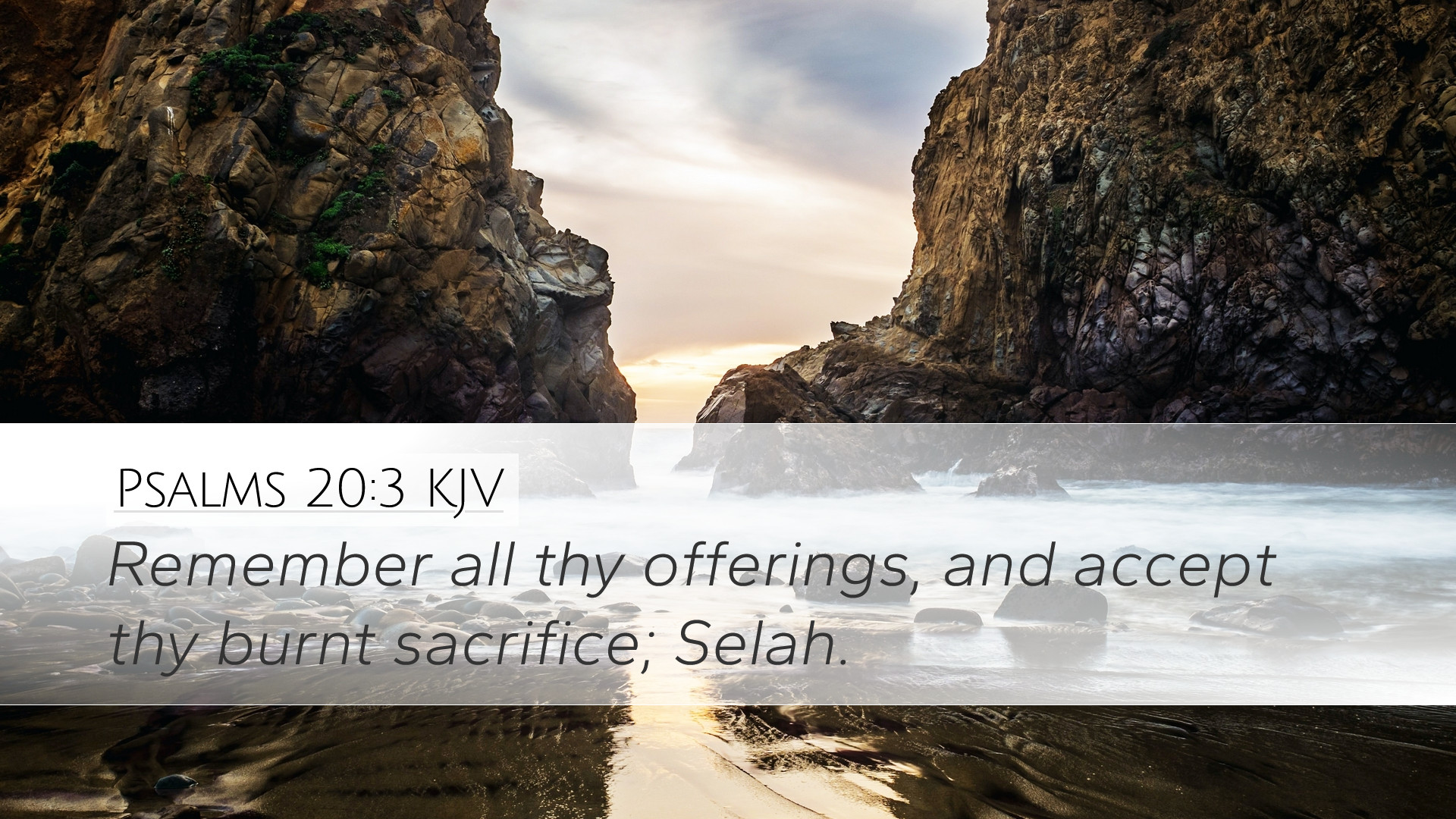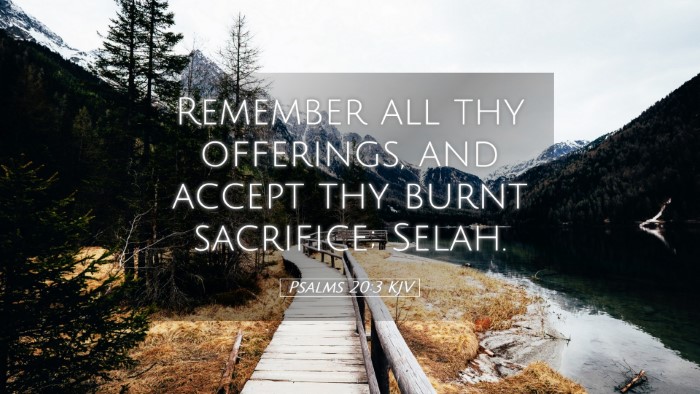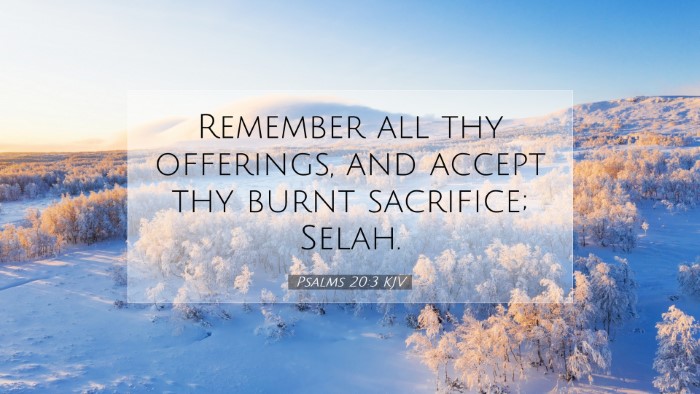Psalms 20:3 Commentary
Verse Text: "Remember all thy offerings, and accept thy burnt sacrifice; Selah."
Introduction
This verse is a part of a psalm attributed to David, which emphasizes the importance of prayer, sacrifice, and divine intervention. Biblical commentators have drawn various insights from this single verse, illustrating its significance in the context of worship and the faithfulness of God towards His people.
Contextual Analysis
The 20th Psalm serves as a national prayer for the king and the people of Israel before battle. It reflects a deep dependence on God for victory and helps to frame the spiritual warfare that occurs in the lives of believers. In this context, the mention of “offerings” and “burnt sacrifice” indicates a plea for God's favor based on past acts of worship.
Matthew Henry’s Commentary
Henry interprets this verse as an appeal to God for the acceptance of sacrifices as symbols of dedication and petition. He highlights the significance of remembering God in the context of offering, not merely as a ritual obligation, but as a heartfelt expression of loyalty and faith. Henry notes:
- True worship leads to divine favor: "Our sacrifices, if we have faith in God's promises, are not in vain."
- The seriousness of offerings: "David does not approach God casually; he understands the weight of sacrifice and its implications for divine acceptance."
- Communal Worship: "The collective prayer for the king reflects the unity of Israel's faith in God's providence."
Albert Barnes’ Commentary
Barnes further fleshes out the idea of sacrifices as an acknowledgment of dependence on God. He takes a practical approach, examining what the offerings represent for both the individual and the community. Key points from Barnes include:
- The nature of sacrifices: "Burnt offerings symbolize complete surrender to God, conveying a message of total commitment."
- Expecting God's response: "We should not only offer but also anticipate that God honors those who invest sincerely in their faith."
- The role of remembrance: "This verse invites believers to reflect upon their own offerings as part of their relationship with God."
Adam Clarke’s Commentary
Clarke provides a more theological lens through which to view the verse, emphasizing the relational aspect between God and the worshiper. His observations include:
- God’s remembrance: "This verse assures believers that God does not forget our sacrifices; He sees our hearts and intentions."
- Encouragement for spiritual leaders: "Leaders must present their offerings with integrity, knowing they represent the collective faith of their people."
- Our sacrifices have eternal value: "Every offering made in faith stands as a testimony of our commitment to God’s purposes."
Theological Implications
The verse highlights profound theological truths regarding sacrifice, remembrance, and divine response. It presents a holistic view of worship that transcends mere rituals. The offerings mentioned represent love, dedication, and trust in God's providence.
1. Sacrifice as a Testament of Faith
In the Old Testament, burnt offerings were a primary method of approaching God. They symbolize an individual's desire to seek atonement and favor from the Lord. The act of offering acknowledges God's sovereignty and recognizes human sinfulness.
2. Divine Response to Faithfulness
The assurance that God remembers our offerings emphasizes His active role in the lives of believers. This is particularly significant for leaders in the church, who must consistently dedicate themselves to God’s work, reflecting integrity and sincerity.
3. A Community Approach to Worship
The psalm’s communal character speaks to the collective nature of worship and prayer. It reminds us that individual sacrifices contribute to a larger community relationship with God, where shared faith leads to communal blessings.
Conclusion
Psalms 20:3 serves as an essential reminder of the importance of sincere worship and the need for divine intervention in every aspect of life. Through reflections on sacrifices, the faithful can derive strength and confidence, knowing that God is attentive to their needs and offerings. The works of Henry, Barnes, and Clarke shed light on these truths, making this verse a critical component of understanding the broader themes present in the Psalms and the entire scripture. For pastors, students, theologians, and scholars, this exploration into Psalms 20:3 provides profound insights into the relationship between God and His people anchored in worship and sacrifice.


